Super PACs Super-Size Campaign Corruption
Given time and enough money, the super PACs and other secretive political campaign funds are capable of causing corruptive influence that could reach from the presidency down to the lowest ranked members of the House.In the 2010 elections, 80 super PACs registered with the Federal Election Commission. This year, more than 250 have signed up.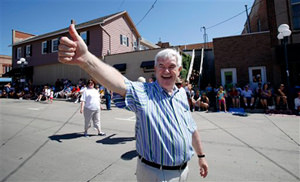
Given time and enough money, the super PACs and other secretive political campaign funds are capable of causing corruptive influence that could reach from the presidency down to the lowest ranked members of the House.
So far, most attention in the campaign has been centered on the opaque nature of these funds, their size and their impact — particularly on former House Speaker Newt Gingrich, targeted by the super PAC affiliated with Mitt Romney’s campaign. Thanks to Stephen Colbert, the subject of campaign finance, usually too arcane for public instruction, has been elevated at least to cocktail party conversation.
The media have also been focused on how the money is being used—in television commercials and other advertising, most of it negative.
But not enough notice has been paid to the possibility—or even likelihood—of corruption. Corruption, of course, has always been part of politics. What’s new is the U.S. Supreme Court’s 2010 Citizens United case. In one of the worst misjudgments of this court, the justices by a 5-4 vote killed as unconstitutional the law banning corporations and unions from paying for political advertising with unlimited contributions from their own treasuries.
The majority said the ban was unconstitutional, violating First Amendment rights of free speech. Corporations and unions, the justices said, are entitled to the same First Amendment protections as individuals.
Corporations and unions quickly moved into action. In the 2010 elections, 80 super PACs registered with the Federal Election Commission. This year, more than 250 have signed up. The election law and its many loopholes permitted formation of other kinds of political action committees, all of them grouped under the classification of organizations that give “independent expenditures.”
Because of loopholes in federal election laws, these contributions are largely undisclosed.
The power of the super PACs was most recently illustrated by the pro-Romney operation, Restore Our Future, as the South Carolina campaign began with a furious effort to knock off Gingrich.
The numbers, as compiled by OpenSecrets.org, part of the Center for Responsive Politics, are amazing and appalling. On Jan. 10, the Romney PAC spent $1.2 million on media advertising. This was followed by $1.7 million a day later and $824,435 on Jan. 17.
Campaign reformer Fred Wertheimer, president of Democracy 21, has pointed out the danger of such big and secretive contributions. He wrote in Politico, “As a result of these developments, secret money and huge contributions are being injected into federal elections in ways and amounts not seen since the Watergate scandals. History demonstrates that such money leads to corruption and scandal.”
Supreme Court Justice Anthony M. Kennedy, in writing the Citizens United opinion, took a different view. He said, “… Independent expenditures, including those made by corporations, do not give rise to corruption or the appearance of corruption. In fact, there is only scant evidence that independent expenditures even ingratiate elected officials to succumb to improper influences from independent expenditures.”
Those words no doubt reflected the justice’s views, shaped perhaps by his late father, Anthony J. Kennedy, who, when I arrived in Sacramento as a young legislative reporter, was one of the most powerful lobbyists in California’s Capitol. Kennedy died in 1963, and his son took over his law-lobbying practice. He grew friendly with Edwin Meese, one of then-Gov. Ronald Reagan’s closest aides, and with Reagan himself.
But then and now I found such sentiments divorced from reality. Any candidate receiving help from a super PAC knows where the money comes from. I’m sure Romney knows who contributes to Restore Our Future, just as the Sacramento legislators knew who contributed to their campaigns.
And if Romney doesn’t know, someone close to him—and who would be close in the White House—certainly will remember the names. Same with President Barack Obama. The pro-Obama PAC Priorities USA Action has started slowly but will speed up as the election nears.
As professor Richard Hasen of UC Irvine’s law school observed in an article on CNN’s website, so much money will be spent on the presidential race that he is not concerned super PAC money will influence the outcome, “although it might.”
Rather, Hasen said, “I am concerned that super PAC spending will influence the outcome of close Senate and congressional races. And I am greatly concerned that when Election Day is over and the public will stop hearing about super PACs, contributions to these groups will skew policy away from the public and toward the interest of the new fat cats of campaign finance as members of the House and Senate thank their friends and look over their shoulder at potential enemies.”
This is just the point that Vermont Independent Sen. Bernie Sanders made in his powerful Senate speech calling for a constitutional amendment overturning Citizens United.
These contributions are like all debts. The IOUs come due and must be paid in Congress and, if the matter is big enough, even in the White House. These debts are not paid in cash but in special favors to the secretive donors, favors not available to anyone else. Add up the huge debts and paybacks, and you’ve opened the door to corruption.
Your support matters…Independent journalism is under threat and overshadowed by heavily funded mainstream media.
You can help level the playing field. Become a member.
Your tax-deductible contribution keeps us digging beneath the headlines to give you thought-provoking, investigative reporting and analysis that unearths what's really happening- without compromise.
Give today to support our courageous, independent journalists.
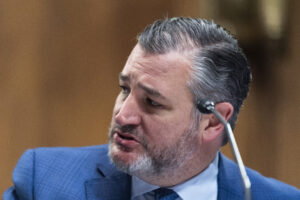
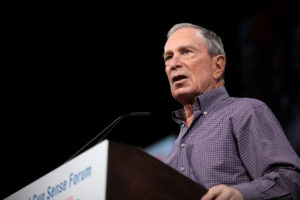

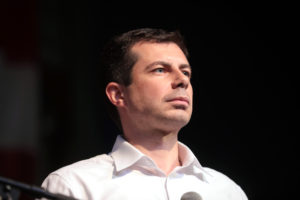
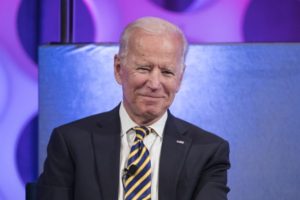

You need to be a supporter to comment.
There are currently no responses to this article.
Be the first to respond.